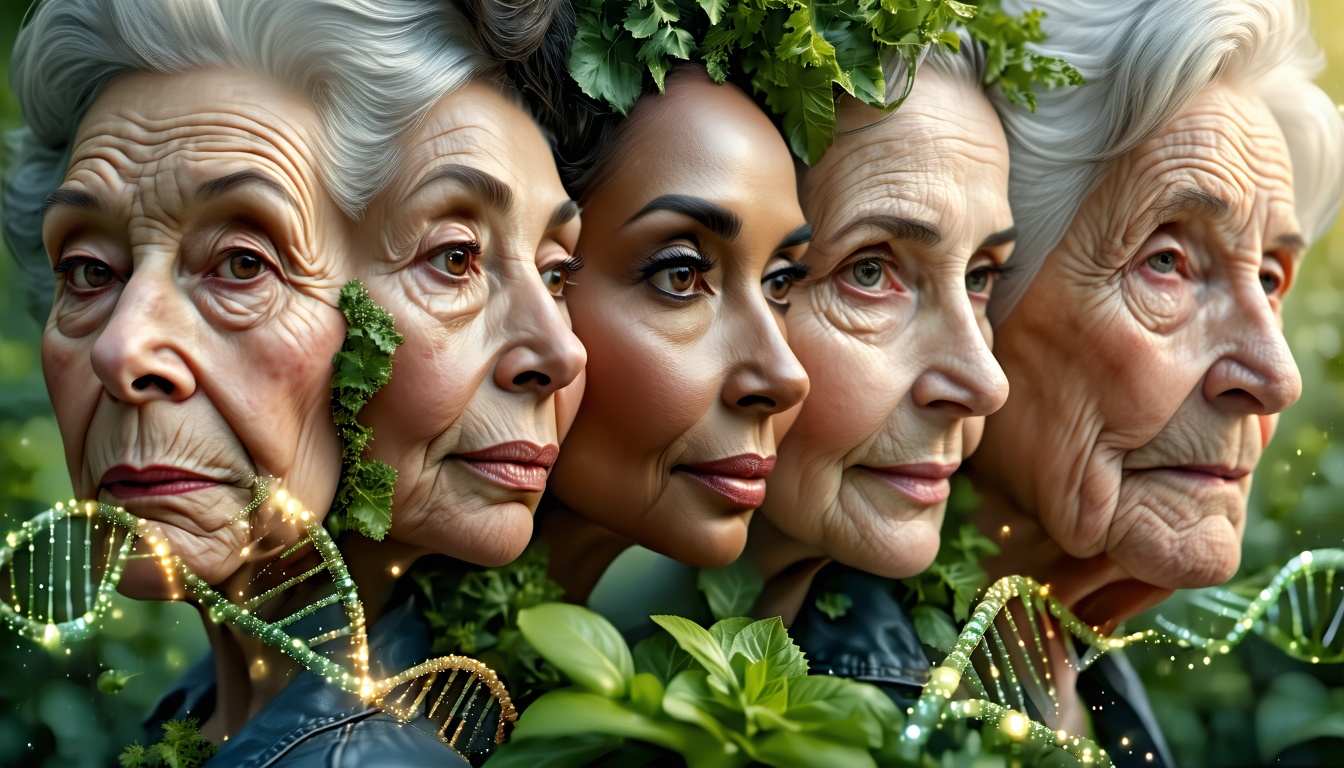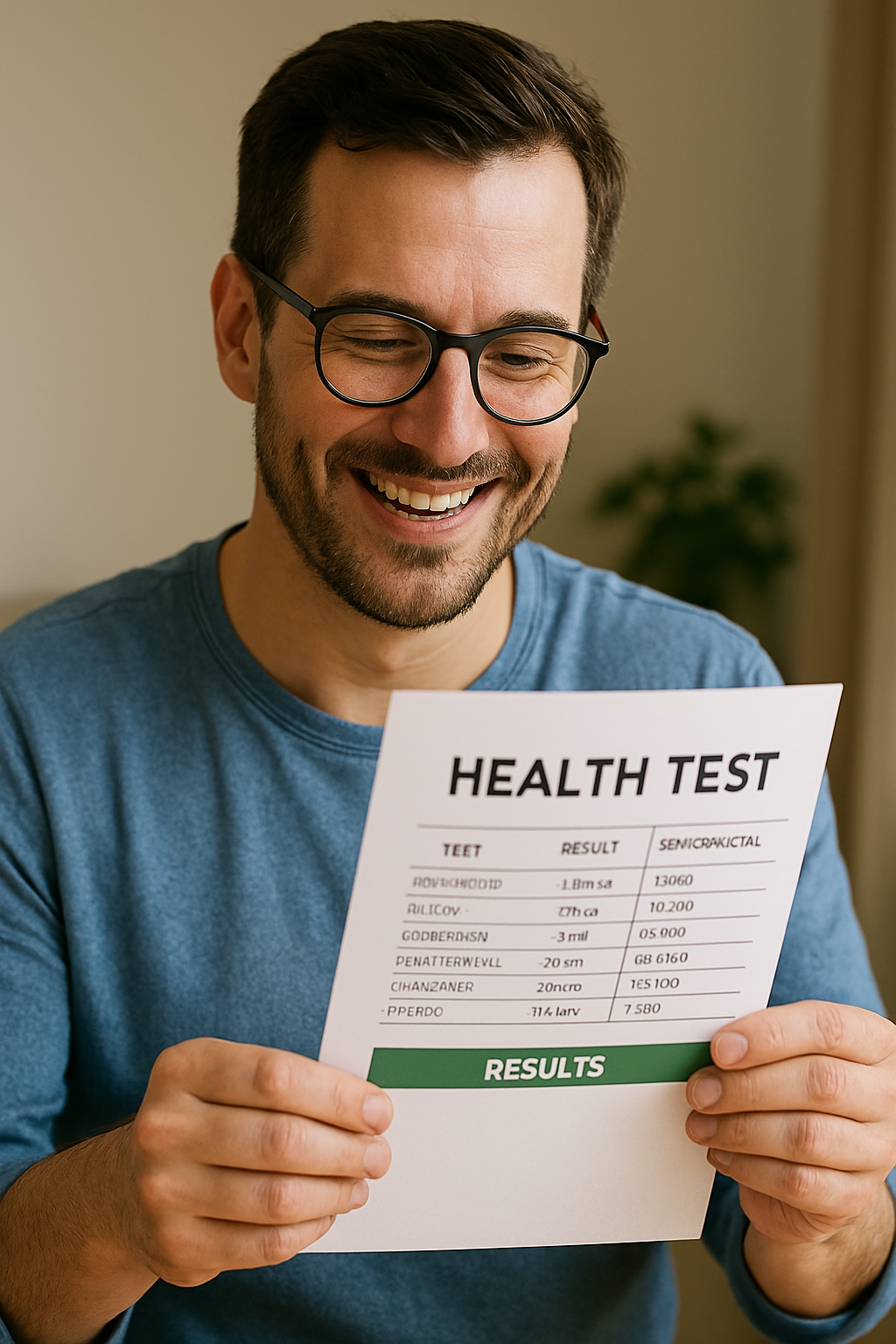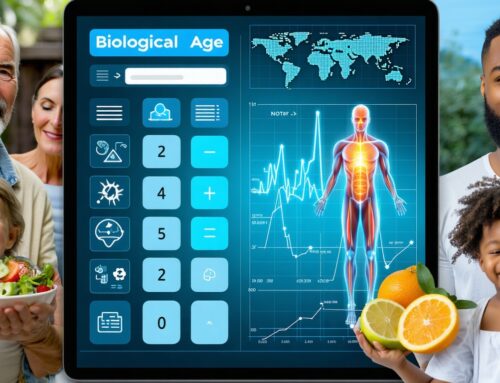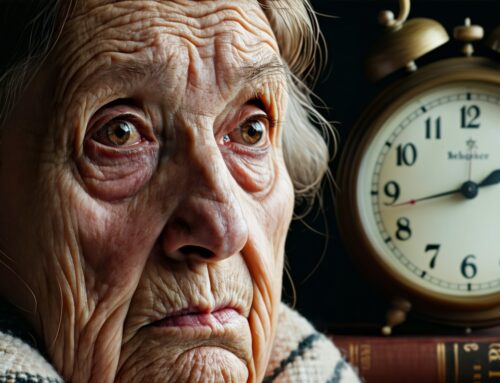Understanding Biological Age
Definition of Biological Age
Biological age is like your body’s backstage pass, showing how well it’s really holding up compared to your actual age. While your chronological age is just a number on a cake, biological age digs deeper, looking at how your cells and organs are doing. It’s a moving target, shaped by your genes, how you live, and where you hang out.
Lately, science has been buzzing about epigenetics, which is all about those little chemical tweaks on your DNA. These might just be the secret sauce for figuring out how fast you’re aging biologically. This has sparked a whole new way of thinking about age, separating the biological from the chronological.
Importance of Biological Age
Getting a handle on your biological age is like having a crystal ball for your health. It gives you a peek into what’s really going on inside, from blood pressure checks to fancy scans and lab tests, even down to your genes and proteins.
Knowing your biological age can clue you in on health risks and chances to make a change. Take epigenetic clocks, for instance—they’re like the Swiss watches of biological age, using DNA methylation in your blood to give a pretty spot-on estimate. Studies show they’re great at predicting disease risks and how long you might stick around.
With this info, you can make smarter choices about your health and lifestyle. Maybe it’s time to pick up some healthier habits, chill out a bit, and boost your overall vibe. Curious about how to figure out your biological age? Check out our guide on how to calculate biological age.
| Factor | Influence on Biological Age |
|---|---|
| Genetics | High |
| Lifestyle | High |
| Environment | Moderate |
| Diet | Moderate |
| Exercise | High |
| Stress | High |
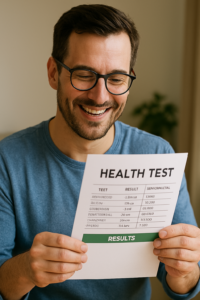
Keeping tabs on your biological age can also show you if your health tweaks are working. By checking in regularly, you can see how you’re doing and tweak things if needed. For more on the tools to measure biological age, swing by our article on biological age assessment tools.
Want to dive deeper into what affects your biological age? We’ve got more on biological age and diet, biological age and exercise, and biological age and stress.
Biomarkers for Biological Age
Figuring out your biological age is like peeking under the hood to see how your body’s really holding up. We’re diving into three big players in this game: epigenetic clocks, telomere length, and phenotypic age calculations.
Epigenetic Clocks
Epigenetic clocks are like the Swiss watches of biological age estimation. They look at DNA methylation, which is a fancy way of saying they check out the little chemical tags that tell your genes what to do. These tags change as you age, making them pretty solid markers for figuring out how old your body thinks it is (Fountain Life).
Take the Glasgow-Karolinska Clock, for example. It’s got a knack for estimating biological age with impressive accuracy across different tissues. Studies even show it can predict your risk of getting sick or kicking the bucket later in life.
| Epigenetic Clock | Accuracy | Predictive Utility |
|---|---|---|
| Glasgow-Karolinska Clock | High | Disease risk, mortality |
Telomere Length Analysis
Telomere length is another way to gauge your biological age. Think of telomeres as the plastic tips on your shoelaces, but for your chromosomes. They get shorter every time your cells divide, and when they get too short, it’s a sign your cells are getting old. Short telomeres are linked to a bunch of age-related health issues like heart disease, diabetes, and cancer.
| Biomarker | Indicator | Associated Risks |
|---|---|---|
| Telomere Length | Cellular aging | Heart disease, diabetes, cancer |
Curious about telomeres? Check out our article on biological age and telomeres.
Phenotypic Age Calculations
Phenotypic age calculations are like a full-body scan for your biological age. They look at a mix of physiological and biochemical markers to see how you’re aging. This method gives you a snapshot of what’s going on inside, from blood pressure to lab tests, genes, and proteins (Mayo Clinic).
| Measurement | Examples |
|---|---|
| Physiological Markers | Blood pressure, imaging |
| Biochemical Markers | Lab tests, genes, proteins |
By comparing your biological age to the average for your actual age, you can get a sense of your overall health. A lower biological age means you’re doing great, while a higher one might mean you’re aging faster, possibly due to lifestyle or genetics.
Want to know how to calculate your biological age? Check out our guide on how to calculate biological age.
Understanding these biomarkers can help you make smarter choices about your health and how long you stick around. Dive into our resources on biological age assessment tools and biological age testing methods to learn more.
Factors Influencing Biological Age
Getting a grip on what makes you tick biologically can steer you toward better health and a longer life. Let’s break down how your genes, lifestyle, and social life play into your biological age.
Genetics and DNA Damage
Your genes are like the blueprint for how you age, making up about 20% of your longevity story. Identical twins often live similar lifespans, more so than fraternal twins, hinting at a genetic hand in the mix. If your folks and grandparents lived long lives, you might have hit the genetic jackpot for longevity.
DNA damage is another piece of the puzzle. As time marches on, your cells take a beating from oxidative stress, telomere wear and tear, and those pesky senescent cells. Chronic inflammation at the cellular level is like hitting the fast-forward button on aging. These genetic and cellular factors team up to shape your biological age.
Lifestyle Factors
How you live your life can really tip the scales on your biological age. Stress, smoking, boozing, being a couch potato, and eating junk can fast-track you to early health issues and even an early exit. Here’s what to keep an eye on:
- Diet: Eating a balanced diet packed with vitamins, minerals, and antioxidants can help keep oxidative stress and inflammation at bay. Check out our article on biological age and diet for more tasty tidbits.
- Exercise: Keeping active helps you hold onto muscle, boosts your heart health, and cuts down on inflammation. Get the lowdown in our article on biological age and exercise.
- Stress Management: Chronic stress is like pouring gasoline on the aging fire, ramping up oxidative stress and inflammation. Yoga and meditation can be your fire extinguishers. Dive into more on stress and aging in our article on biological age and stress.
- Sleep: Good sleep is your body’s repair shop. Skimping on shut-eye can age you faster. Learn more in our article on biological age and sleep.
Social Connectedness
Having a solid social circle can keep you young at heart and mind. Folks with strong social ties tend to age better and keep their wits about them. On the flip side, those flying solo might find themselves biologically older than their years.
Building and maintaining relationships, and getting involved in social activities, can give your biological age a boost. Think about joining clubs, volunteering, or just hanging out more with family and friends to up your social game.
By getting a handle on these factors, you can take charge and give your biological age a nudge in the right direction. For more on how to measure and assess your biological age, check out our articles on biological age assessment tools and biological age testing methods.
Methods for Measuring Biological Age
Getting a grip on your biological age can be like peeking into a crystal ball for your health and how long you might stick around. There are a few ways to measure it, each with its own quirks and perks. Let’s break down three popular methods: DNA methylation analysis, telomere length testing, and phenotypic age calculations.
DNA Methylation Analysis
DNA methylation analysis is like the Sherlock Holmes of biological age measurement. It checks out chemical tweaks, called methyl groups, that play a role in how your genes do their thing. These changes follow a pattern as you age, making them pretty solid markers. Epigenetic clocks, like the Glasgow-Karolinska Clock, can pinpoint your biological age with impressive accuracy across different body parts.
| Method | Description | Accuracy |
|---|---|---|
| DNA Methylation Analysis | Looks at chemical changes on DNA linked to aging | High |
Lifestyle, stress, and healthcare access can mess with DNA methylation. The cool part? You can turn back the clock with some lifestyle tweaks, making this method not just a diagnostic tool but a roadmap to better health.
Telomere Length Testing
Telomere length testing is another go-to for checking biological age. Telomeres are like the plastic tips on shoelaces, protecting the ends of chromosomes. They get shorter every time a cell divides, and shorter telomeres mean your cells are getting old. This is linked to a higher chance of age-related issues like heart problems, diabetes, and cancer.
| Method | Description | Accuracy |
|---|---|---|
| Telomere Length Testing | Measures the length of protective caps on chromosome ends | Moderate |
Telomere length gives you a peek into your cellular health and potential risks for age-related diseases. For more on how telomeres play into aging, check out our article on biological age and telomeres.
Phenotypic Age Calculations
Phenotypic age calculations take a wider look at biological age by mixing various health markers like blood pressure, cholesterol levels, and other routine check-up stuff. This method gives a full picture of your health and how it ties into aging (Fountain Life).
| Method | Description | Accuracy |
|---|---|---|
| Phenotypic Age Calculations | Combines multiple health markers for a full assessment | Variable |
Phenotypic age calculations can be super handy for spotting where lifestyle changes can make the biggest splash. For more on how to figure out your biological age using these methods, check out our guide on how to calculate biological age.
By getting the scoop on different ways to measure biological age, you can pick the one that fits you best and gives the clearest picture of your health. Whether you go for DNA methylation analysis, telomere length testing, or phenotypic age calculations, each method offers valuable info to help you keep tabs on your health and longevity. For more on biological age assessment tools, visit our page on biological age assessment tools.
Implications of Biological Age
Legal Age Considerations
Biological age could shake up how we think about legal age. Right now, it’s all about how many birthdays you’ve had. But science is hinting that our body’s inner workings might tell a different story. Epigenetics, the study of changes in organisms caused by modification of gene expression, suggests that our biological age might be a better measure of how old we really are (Harvard Bioethics Journal). Imagine a world where your legal age isn’t just a number on a calendar but a reflection of your body’s true state.
Biological age gives a peek into how your body is holding up, using clues from blood pressure, fancy scans, lab tests, and even your genes and proteins (Mayo Clinic). This could mean big changes in how we think about legal age since biological age might be a better gauge of how well you’re functioning.
| Age Type | Definition | Implications |
|---|---|---|
| Chronological Age | Number of years lived | Sets legal age now |
| Biological Age | Age based on body clues | Might change legal age rules |
Health Risk Predictions
Knowing your biological age is like having a crystal ball for your health. It’s shaped by things like your genes, DNA wear and tear, stress on your cells, and inflammation (Mayo Clinic). By checking these, you get a sneak peek at your health and what might be coming down the road.
If your biological age is way ahead of your actual age, you might be more likely to face health issues like heart problems, diabetes, or cancer. On the flip side, if your biological age is younger, you might dodge these bullets and enjoy a healthier life.
| Factor | Impact on Biological Age |
|---|---|
| Genetics | Speeds up or slows down aging |
| DNA Damage | Makes you age faster |
| Oxidative Stress | Hurts your cells |
| Telomere Erosion | Cuts cell life short |
| Senescent Cells | Adds to aging and illness |
| Chronic Inflammation | Pushes aging and health risks |
By getting a handle on your biological age, you can make smart moves to boost your health and maybe even turn back the clock. This could mean eating right, staying active, chilling out, and keeping your social life buzzing. For tips on figuring out your biological age, check out our guide on how to calculate biological age.
Adding biological age checks to your health routine can help you and your doctor make better choices about your health. For more on the tools and tricks to measure biological age, swing by our article on biological age assessment tools.
Advancements in Biological Age Research
Artificial Intelligence Applications
Artificial intelligence (AI) is shaking up how we look at biological age. It’s like having a super-smart friend who can tell the difference between how old you are on paper and how old your body feels. AI-enabled EKGs are now able to spot the difference between your actual age and your biological age, which is a big deal because it can predict heart-related issues (Mayo Clinic). This tech is a game-changer for predicting health risks and tailoring health plans just for you.
AI dives into heaps of data from things like DNA patterns, telomere length, and other traits. By piecing together these clues, AI can give you a full picture of your biological age. This means catching signs of aging early and taking steps to keep you feeling young.
| Technology | What It Does | Why It Matters |
|---|---|---|
| AI-enabled EKG | Tells apart your real age from your body’s age | Better health predictions |
| DNA Methylation Analysis | Looks at changes in your genes | Spots aging signs early |
| Telomere Length Testing | Checks how your cells are aging | Custom health advice |
Curious about figuring out your biological age? Check out our guide on how to calculate biological age.
Genetic Influences on Aging
Your genes have a lot to say about how you age. Studies have found certain genes linked to aging traits like how strong you are, how sharp your mind stays, and even how long your parents lived. These genetic clues help us understand what makes us age the way we do.
The Klemera and Doubal’s method (KDM) is a top-notch way to guess your biological age, even if you’re still young. It looks at how your biological age lines up with your real age and other aging signs, making it a solid way to predict how long you might live.
Another cool tool is structural equation modeling (SEM), which mixes different analysis methods to figure out how various factors are connected. This can be combined with other models to estimate biological age, offering a fresh way to look at complex relationships among aging markers.
| Genetic Marker | What It Tells Us | Why It Matters |
|---|---|---|
| Frailty Index | Physical toughness | Predicts biological age |
| Handgrip Strength | Muscle power | Aging indicator |
| Cognitive Resilience | Mental sharpness | Longevity clue |
Knowing how your genes affect aging can help you make smart choices about your health and lifestyle. For more info, dive into our articles on biological age and genetics and biological age and longevity.
With the help of AI and genetic research, you can get a better grip on your biological age and take steps to boost your health and happiness.

